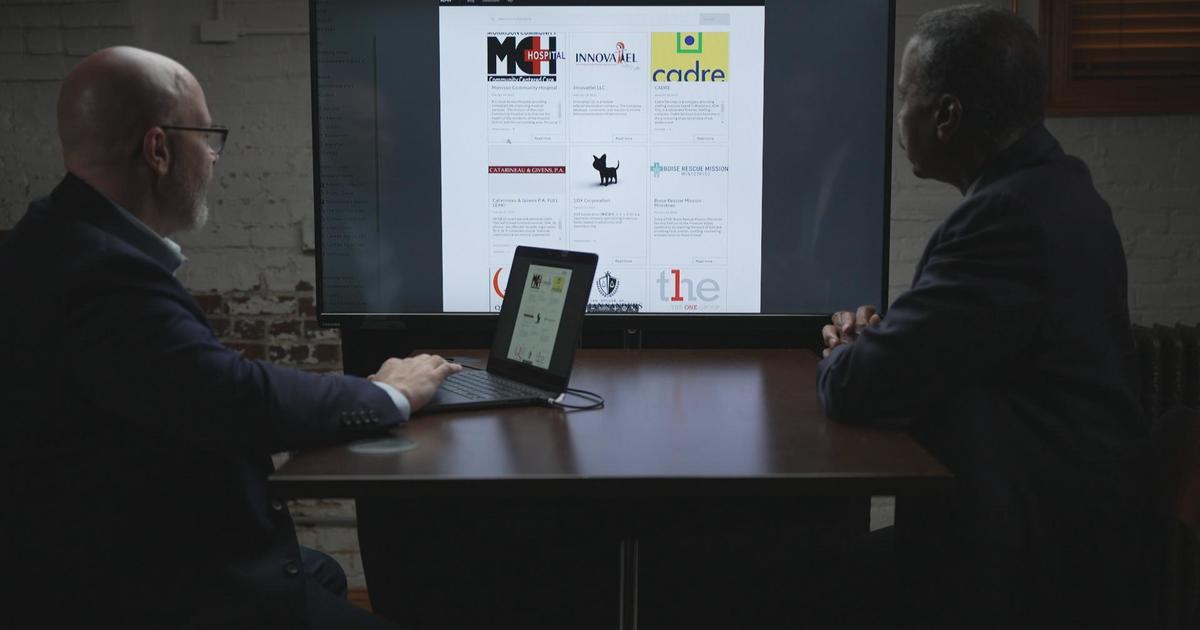Facebook has new rules for political ads. Here's how they work
How do you solve a problem like Russian propagandists? How do you keep them from meddling in elections?
Well, at Facebook, the answer is to be more transparent about political ads.
Starting Thursday, the company said, it's following through on its promise from late last year to add verification, disclosures and additional information to all political ads.
The way it'll work is that when you see a political ad on Facebook, there will be a "Paid for by" disclosure at its top. If you click on the label, you'll be taken to a page where you can learn much money was spent, how many people saw it, and a breakdown of their age, gender and location.
Facebook will also make this data publicly accessible at facebook.com/politicalcontentads for seven years from the day they run.
"This is a tool that makes it easier for you to find problems and is something that we want to invite you to report as well so we get better faster," said Rob Leathern, Director of Product Management at Facebook, in a conference call with journalists Thursday.
To many, the new policy couldn't have come quickly enough. The social networking giant has been under increasing scrutiny following two scandals over Russian propagandists and a data leak that exposed up to 87 million user's profile information to a UK-based political consultancy called Cambridge Analytica. Together, they've pushed Facebook, and its 34-year old wunderkind co-founder Mark Zuckerberg, to go before lawmakers, investors, advertisers, developers and even us users to apologize for failing to properly manage one of the world's largest websites.
Now Facebook is playing catch up. It's set new privacy policies and data protection rules and instituted audits to prevent app developers from improperly leaking user information again. And now it's making good on its promise to begin tackling the specter of more disinformation campaigns during the upcoming midterm elections in the US.
But, as Facebook is quick to point out, these moves are just the latest in a series of efforts to strengthen its service from further abuse. It's not a guarantee this all won't happen again.
"As long as there are people sitting in Russia whose job it is to interfere with elections around the world, this is going to be an ongoing conflict," Zuckerberg said when speaking to Congress last month. "This is an ongoing arms race."
Doing something, at least
It didn't take much for the Russian propagandists to make a splash on Facebook. Last year, the company said it found $100,000 worth of ads purchased from Russian-linked accounts. That bought 3,000 ads seen by 10 million Facebook users. When Zuckerberg disclosed the ads, he vowed to work for more "election integrity."
Facebook has since partnered with researchers to establish an "independent election research commission" that Zuckerberg said "will solicit research on the effects of social media on elections and democracy." The group is also helping to analyze political advertising on Facebook and help others access it more easily for their own research.
Facebook isn't along tackling the issue of political ads. Twitter and Google both are instituting new rules around political ads, too. Facebook and Twitter have also expressed support for the Honest Ads Act, a bill moving through Congress that would require political ads on the internet to have similar transparency as those on radio and television by, for example, identifying who paid for them.
To help make sure no one tries to run political ads outside Facebook's rules, the company is turning to its artificial intelligence technology to help. These AI programs are trained to help identify which ads might be trying to circumvent Facebook's rules.
Users themselves can also flag questionable ads, which will then be reviewed by the company. Facebook says that by adding a second reviewing step for reported ads, and offering copies of them in the ads archive, that will protect from when people might report an ad in bad faith.
"Part of how we're going to be held accountable and how we're going to involve folks is by providing the archive, which will show you all the different ads we have," Leathern said. "We believe we have very good coverage in place."
This article originally appeared on CNET.



